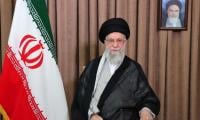IMF deal
After much delay, Pakistan has reached a staff-level deal with the International Monetary Fund. The IMF will give Pakistan around $6 billion over three years. The trouble is that the deal is not totally approved yet – the government has a number of pre-conditions left to fulfil. A number of major actions will need to be taken in advance, including Rs600 billion in additional taxation measures, hikes in electricity tariffs and policy rates, as well as allowing exchange rate mobility. The IMF executive board is likely to approve the deal based on the implementation of these measures, which means that there could still be time before the IMF bailout is confirmed. So purely in terms of getting the deal in place, there is work still to be done. The bailout has been talked about for so long that, for many, it is a relief that the IMF and Pakistan have agreed to a basic programme. What the IMF bailout and its terms would do to the Pakistani economy is another matter.
Looking at the reports, it seems that the IMF has set stringent conditions on Pakistan, which will effectively punish the economy and the public in the short term at least. Cutting down government spending will require a clampdown on the development budget, which will push economic growth down. The promise of a flexible exchange rate itself will cause great uncertainty. The government has promised to bring the exchange rate down by around 20-30 percent, but this move is unlikely to spur greater exports at a time when subsidies and support will be removed from exporting industries. The IMF’s language remains vague. It has called for ‘decisive’ policies and reforms, but decisive policies can involve going a separate direction.
The IMF wants Pakistan to reduce its vulnerabilities. But one must ask whether devaluing Pakistan’s currency would not increase its vulnerability to macroeconomic instability. The IMF also wants Pakistan to increase confidence, but opposition parties and economists have wondered whether investors can be confident when the government is reducing its own development budget. The promise is that bailout reforms will put the economy back on a path to sustainable growth, but experts have wondered how such a path can involve curtailing economic growth – and in real terms, shrinking the dollar value of the GDP massively within a couple of years? The question being asked by critics of the programme is: will Pakistan really get out of its economic mess by doing more of what the IMF wants? What about the lessons from the last three decades of IMF-led economic reforms? It would appear that those in charge of governing Pakistan and fixing its economy have no other model to offer. for now, the immediate future seems to carry more pain. One can only hope those at the helm know what they are doing.
-
 'Sinners' Delroy Lindo Breaks Silence On BAFTA's Tourette’s Incident At NAACP Image Awards
'Sinners' Delroy Lindo Breaks Silence On BAFTA's Tourette’s Incident At NAACP Image Awards -
 Billy Joel Admits Cancelling Of Tour Due To Brain Disorder 'sounds A Lot Worse' Than It Is
Billy Joel Admits Cancelling Of Tour Due To Brain Disorder 'sounds A Lot Worse' Than It Is -
 US And Israeli Strikes On Iran: Everything You Need To Know
US And Israeli Strikes On Iran: Everything You Need To Know -
 US Strikes On Iran Ignite Emergency Push For Powers Legislation: Report
US Strikes On Iran Ignite Emergency Push For Powers Legislation: Report -
 Kelly Osbourne's Mom Sharon Receives 'shut Up' Call Accepting An Award For Late Hubby?
Kelly Osbourne's Mom Sharon Receives 'shut Up' Call Accepting An Award For Late Hubby? -
 Claude Overtakes ChatGPT On Apple App Store After Pentagon Dispute
Claude Overtakes ChatGPT On Apple App Store After Pentagon Dispute -
 What Happened To Ayatollah Ali Khamenei's Family During US -Israel Attack On Iran
What Happened To Ayatollah Ali Khamenei's Family During US -Israel Attack On Iran -
 BRIT Awards 2026 Winners Revealed
BRIT Awards 2026 Winners Revealed -
 Shia LaBeouf Arrested Again In New Orleans On Additional Battery Charge
Shia LaBeouf Arrested Again In New Orleans On Additional Battery Charge -
 Shamed Andrew Upset With THIS Family Member Over Current Condition
Shamed Andrew Upset With THIS Family Member Over Current Condition -
 Michael Jackson Estate Sued With Allegations Of Years Of Abuse From Late Singer
Michael Jackson Estate Sued With Allegations Of Years Of Abuse From Late Singer -
 Meghan Markle Shows ‘real Pain’ With Her Body Language In Jordan
Meghan Markle Shows ‘real Pain’ With Her Body Language In Jordan -
 Jennifer Garner Names Her Movie That She Hasn't Seen In Full Since Its Premiere
Jennifer Garner Names Her Movie That She Hasn't Seen In Full Since Its Premiere -
 Bridgerton’s Michelle Mao On Facing Backlash As Season Four Antagonist
Bridgerton’s Michelle Mao On Facing Backlash As Season Four Antagonist -
 King Charles Gets New ‘secret Weapon’ After Andrew Messes Up
King Charles Gets New ‘secret Weapon’ After Andrew Messes Up -
 Shia LaBeouf Makes Bold Claim About Homosexuals In First Interview After Mardi Gras Arrest
Shia LaBeouf Makes Bold Claim About Homosexuals In First Interview After Mardi Gras Arrest



